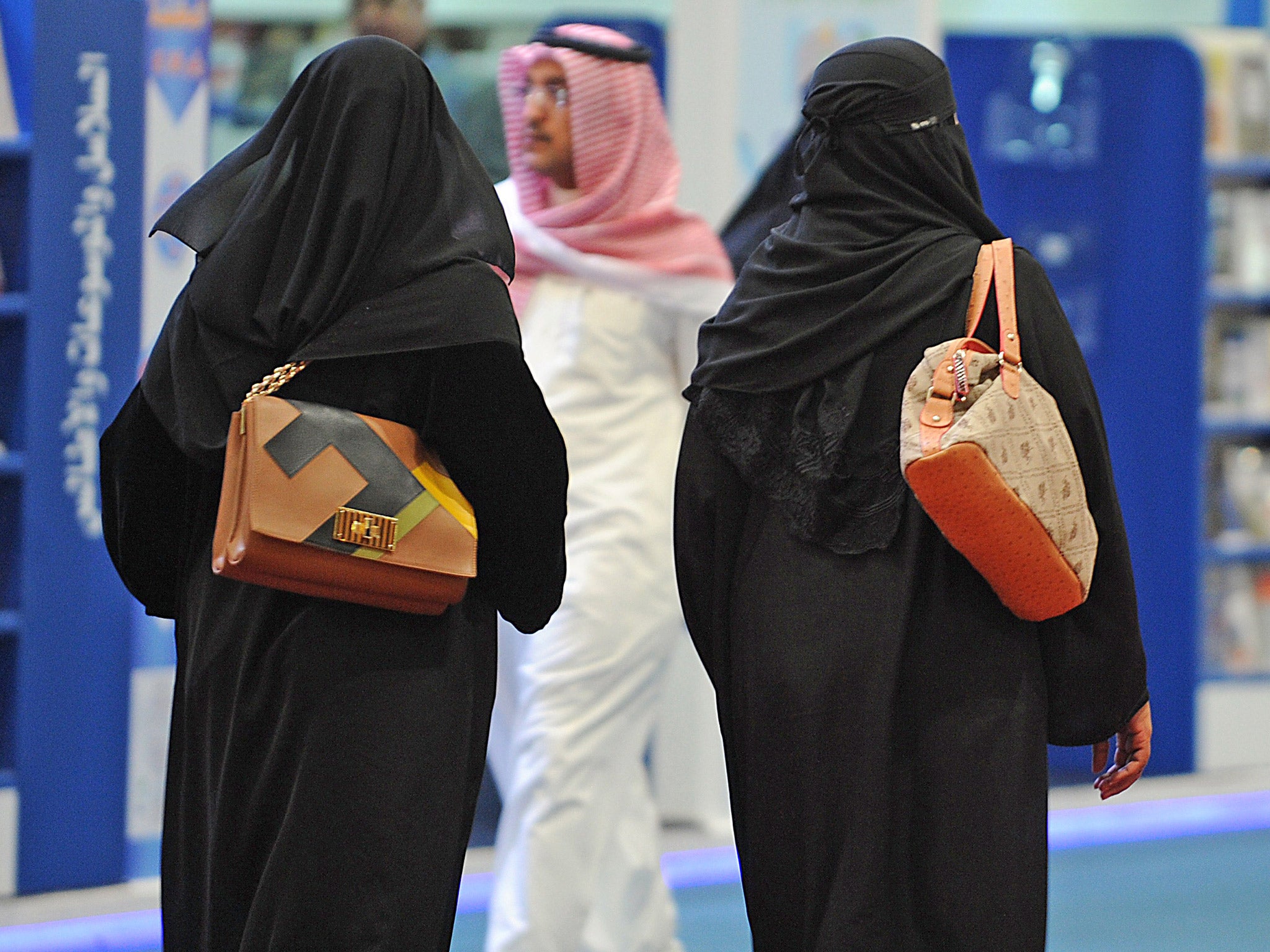Five things that Saudi Arabian women still cannot do
Despite Saudi women standing for office for the first time, the country still has a long journey towards gender equaity

Your support helps us to tell the story
From reproductive rights to climate change to Big Tech, The Independent is on the ground when the story is developing. Whether it's investigating the financials of Elon Musk's pro-Trump PAC or producing our latest documentary, 'The A Word', which shines a light on the American women fighting for reproductive rights, we know how important it is to parse out the facts from the messaging.
At such a critical moment in US history, we need reporters on the ground. Your donation allows us to keep sending journalists to speak to both sides of the story.
The Independent is trusted by Americans across the entire political spectrum. And unlike many other quality news outlets, we choose not to lock Americans out of our reporting and analysis with paywalls. We believe quality journalism should be available to everyone, paid for by those who can afford it.
Your support makes all the difference.Women in Saudi Arabia will be voting and standing for office for the first time in the oil monarchy’s municipal elections this weekend.
Around 900 women will be standing among 7,000 people vying for seats on the county’s 284 local councils.
However, despite finally winning a right in 2015 that British women have enjoyed from 1918, and New Zealand granted its women in 1893, it remains a small step towards real gender equality.
Power is still very much left in the hands of the patriarchal monarchy of King Salman.
Amnesty International UK’s Karen Middleton told The Independent the change was “a long overdue move that is welcome but only a tiny fraction of what needs to be addressed over gender inequality in Saudi Arabia”.
Here are five things that women in Saudi Arabia still cannot do in the 21st century.
Vote to the same extent as men
While legally all people over 18 now have the right to vote in Saudi elections, only about 131,000 women have signed up to vote, compared with more than 1.35 million men, out of a native Saudi population of almost 21 million, AFP reports.
Aside from simply getting to ballot boxes, local authorities have been criticised for lacking awareness of the process and its significance, hindering female voter registration.
Beyond the limited number of female voters and candidates, this election does not mark a democratisation of Saudi Arabia. The municipal councils have highly limited powers, merely looking after streets, public gardens and rubbish disposal.
Walk outside uncovered
Saudi Arabia’s remain some of the strictest dress restrictions for women in the Muslim world, with only women’s eyes and hands permitted to be uncovered.
This is ruthlessly enforced by the “Mutaween” or religious police, who routinely beat women who show exposed flesh in public.
Meet men who are not family in public
Saudi women are not permitted to meet men outside of their families.
Female family members must almost always be accompanied by a male family chaperone in public.
This is enforced to the extent that most Saudi houses have separate entrances for men and women. This extends to segregated schools, universities, and workplaces.
Drive
Saudi Women are still not permitted to drive cars, with this being ruled by Wahhibist scholars as “haram”, or forbidden, due to the requirement for women to maintain covering, and the threat that they would have to interact with men outside their families.
However, a women’s driving campaign has been running since the 1990’s in Saudi Arabia, with many well-publicised cases of women’s right activists flouting the law in protest. In many cases, these women find their passports confiscated.
Open a bank account
Women are forbidden from travelling, conducting official business, or undergoing certain medical procedures without permission from their male guardian.
While the number of women working and opening their own businesses is on the rise, they face continued small frictions, requiring the assistance of male guardians to do things as simple as opening a bank account.
Join our commenting forum
Join thought-provoking conversations, follow other Independent readers and see their replies
Comments